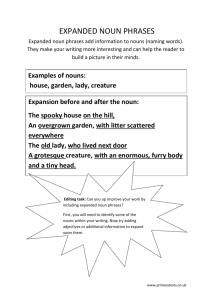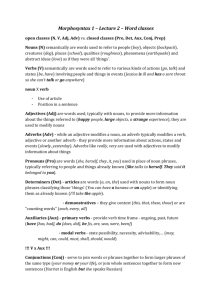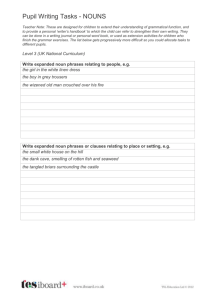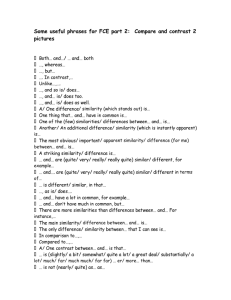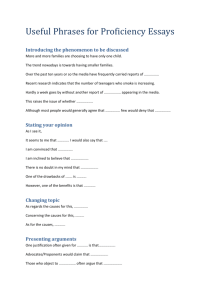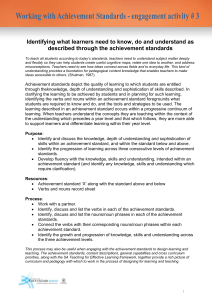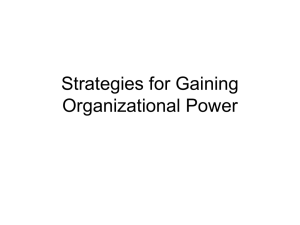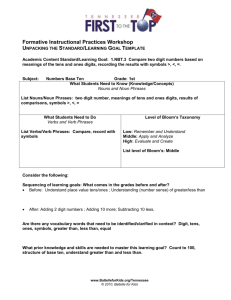Sort Activity and ELD Objectives Handouts
advertisement
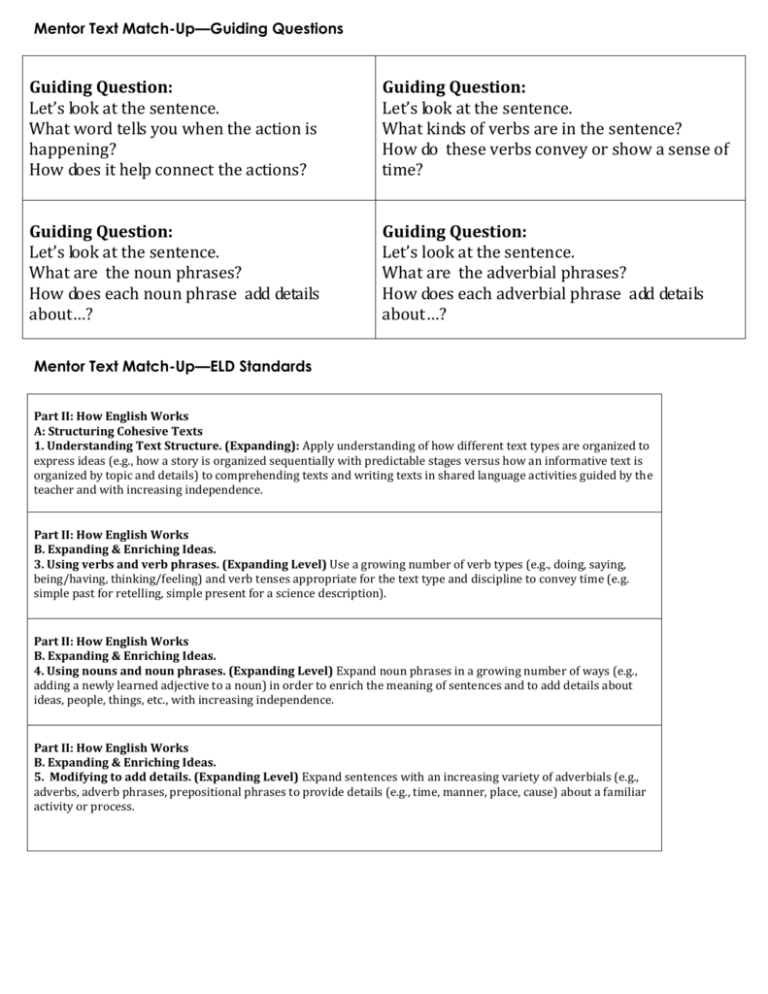
Mentor Text Match-Up—Guiding Questions Guiding Question: Let’s look at the sentence. What word tells you when the action is happening? How does it help connect the actions? Guiding Question: Let’s look at the sentence. What kinds of verbs are in the sentence? How do these verbs convey or show a sense of time? Guiding Question: Let’s look at the sentence. What are the noun phrases? How does each noun phrase add details about…? Guiding Question: Let’s look at the sentence. What are the adverbial phrases? How does each adverbial phrase add details about…? Mentor Text Match-Up—ELD Standards Part II: How English Works A: Structuring Cohesive Texts 1. Understanding Text Structure. (Expanding): Apply understanding of how different text types are organized to express ideas (e.g., how a story is organized sequentially with predictable stages versus how an informative text is organized by topic and details) to comprehending texts and writing texts in shared language activities guided by the teacher and with increasing independence. Part II: How English Works B. Expanding & Enriching Ideas. 3. Using verbs and verb phrases. (Expanding Level) Use a growing number of verb types (e.g., doing, saying, being/having, thinking/feeling) and verb tenses appropriate for the text type and discipline to convey time (e.g. simple past for retelling, simple present for a science description). Part II: How English Works B. Expanding & Enriching Ideas. 4. Using nouns and noun phrases. (Expanding Level) Expand noun phrases in a growing number of ways (e.g., adding a newly learned adjective to a noun) in order to enrich the meaning of sentences and to add details about ideas, people, things, etc., with increasing independence. Part II: How English Works B. Expanding & Enriching Ideas. 5. Modifying to add details. (Expanding Level) Expand sentences with an increasing variety of adverbials (e.g., adverbs, adverb phrases, prepositional phrases to provide details (e.g., time, manner, place, cause) about a familiar activity or process. Mentor Text Match-Up-Texts Days were long and lonely. The hills spread out as far as forever. Nights, me and Ma and my brothers and Baby Betsy would sit out and wait for a shooting star to sail across the sky. Once in a while a crow flew by. That’s all the excitement there was. My brothers worked up some furrows. They planted corn and potatoes and beans. Then they ran around climbing trees, skinning their knees. But after all the water was fetched and the wash was done, after the soap was made and the fire laid, after all the beds were fixed and the floor was swept clean, I’d sit outside our cabin door with Baby Betsy, so bored I thought I’d die. 3rd Grade Swimming along, sometimes at great speed, sometimes slowly and leisurely, sometimes resting and exchanging ideas, sometimes stopping to sleep, it took them a week to reach Amos’ home shore. During that time, they developed a deep admiration for one another. Boris admired the delicacy, the quivering daintiness, the light touch, the small voice, the gemlike radiance of the mouse. Amos admired the bulk, the grandeur, the power, the purpose, the rich voice, and the abounding friendliness of the whale. 2nd Grade You can make a mask, too! First, get a plate. Cut holes into it. Check that you can see. Next, color the mask. Paste fun things on it. Soon you will have a mask! Last, tape a band on the back of the mask. Put the mask on. Who are you? 1st Grade
